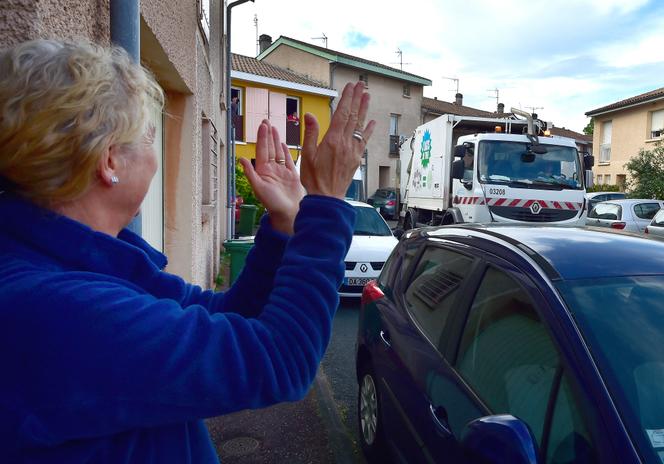

Nothing can ever be the same again – is what we might have been tempted to think, in the shock and general state of anxiety caused by the Covid-19 pandemic. Five years after the start of the lockdown that brought France to a standstill on March 17, 2020, the memory of this naive sentiment, buoyed by the hope of escaping a nightmare, is tinged with bitterness. If the world is no longer "the same," it's certainly no better. Society is not done analyzing and attempting to repair the damage caused by repeated lockdowns, the economic and budgetary decisions imposed by Covid and the suspicion cast on scientists and politicians. Even the promise, which seemed within reach, of progress toward resolving crucial social problems revealed by the pandemic remains to be fulfilled.
Such is the case of "second-line workers," those "women and men whom our economies recognize and pay so poorly," but on whom "our country depends entirely," in the words of President Emmanuel Macron, in his April 13, 2020, address. "We'll have to remember [them]," Macron said at the time. Those were the days when the French people opened their windows at 8 pm to applaud hospital workers and looked on as heroes to the supermarket cashiers and delivery drivers.

Covid was an eye-opener on the situation of these indispensable but poorly-paid workers, whose tasks are often arduous, incompatible with remote work, with impossible working hours and little prospect of advancement, and who are exposed to contamination. No one can ignore the enormity of the paradox between the recognition of the essential nature of their contribution to society and the contempt with which society holds them in terms of pay, status and working conditions.
And yet, beyond the glowing tributes, little has been done. A report commissioned by then-Minister of Labor Elisabeth Borne did identify seventeen affected professions – from cleaner to baker, from supermarket worker to home care worker – and the subject was included on the social agenda. But promises of negotiations between workers' unions and employers' organizations on collective agreements never materialized due to a lack of political will.
Even the exceptional purchasing power bonus did little to benefit "essential workers" in particular. As for the promising idea of a job quality index, it has yet to be implemented. The main achievement of the period is that the situation of the workers concerned has now been identified and objectively analyzed. We know that wages do not compensate for the arduousness of their working conditions and that after the age of 50 their disability rate is twice that of the average worker.
The missed opportunity, in the post-Covid era, to take into account and improve the daily lives of France's 6.8 million "essential workers," only reinforced the idea that political leaders are out of touch with the realities of life, and fueled bitterness. It undoubtedly also contributed to the stalemate in the pension debate. It would be a mistake to downplay the political reactions linked to the feeling of contempt and downgrading fueled by the deafness of the executive branch, which, election after election, provides a breeding ground for demagogues.
Translation of an original article published in French on lemonde.fr; the publisher may only be liable for the French version.
